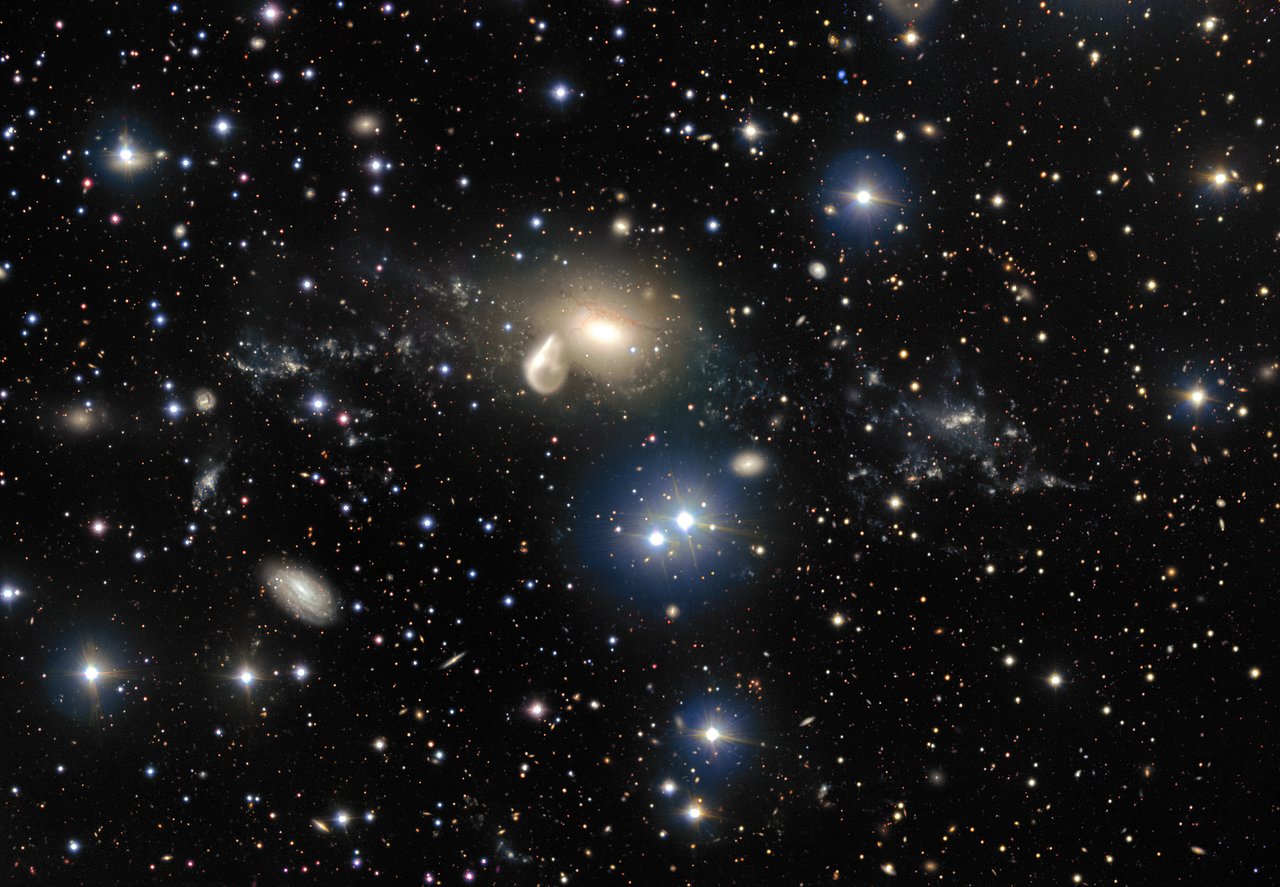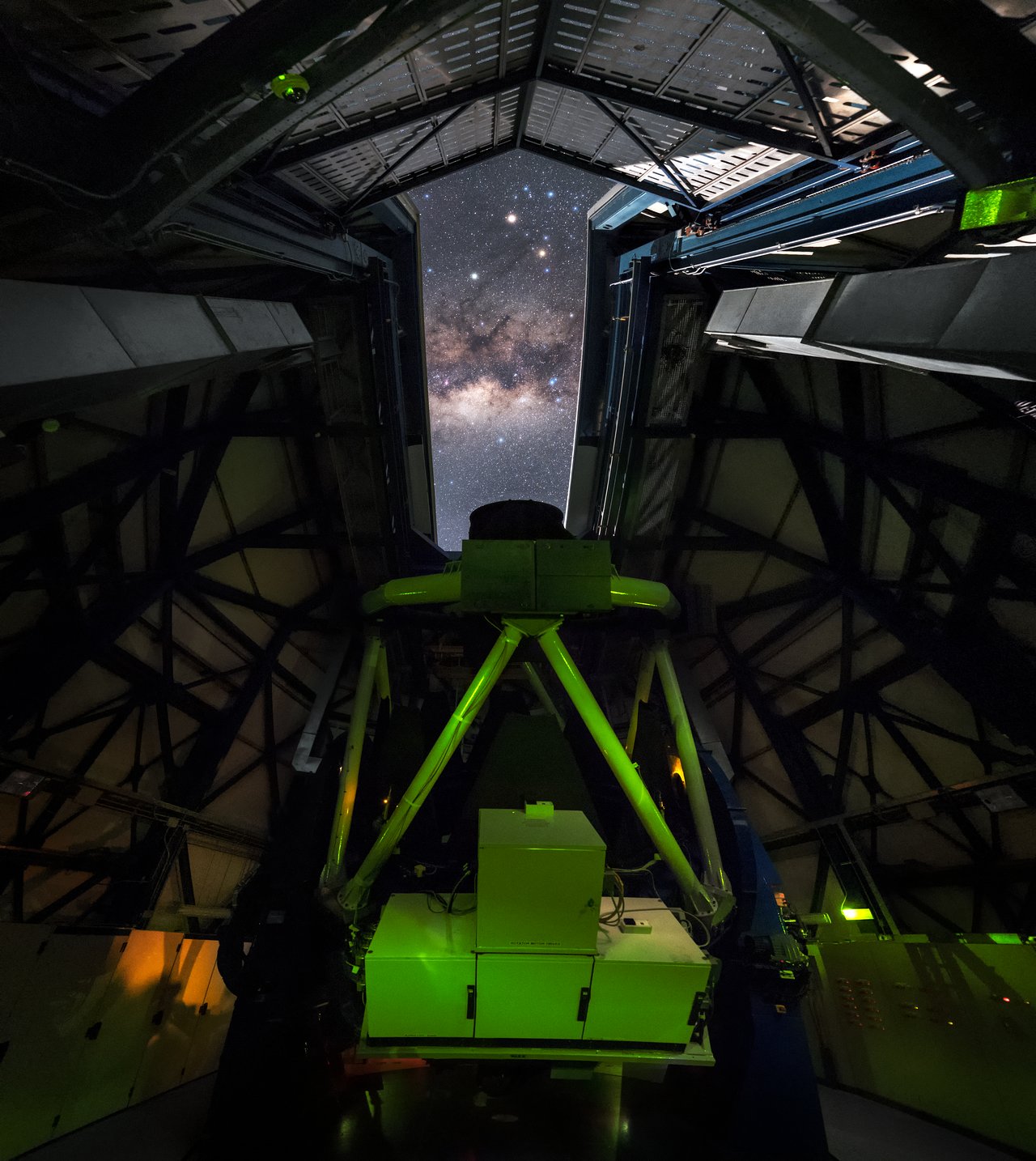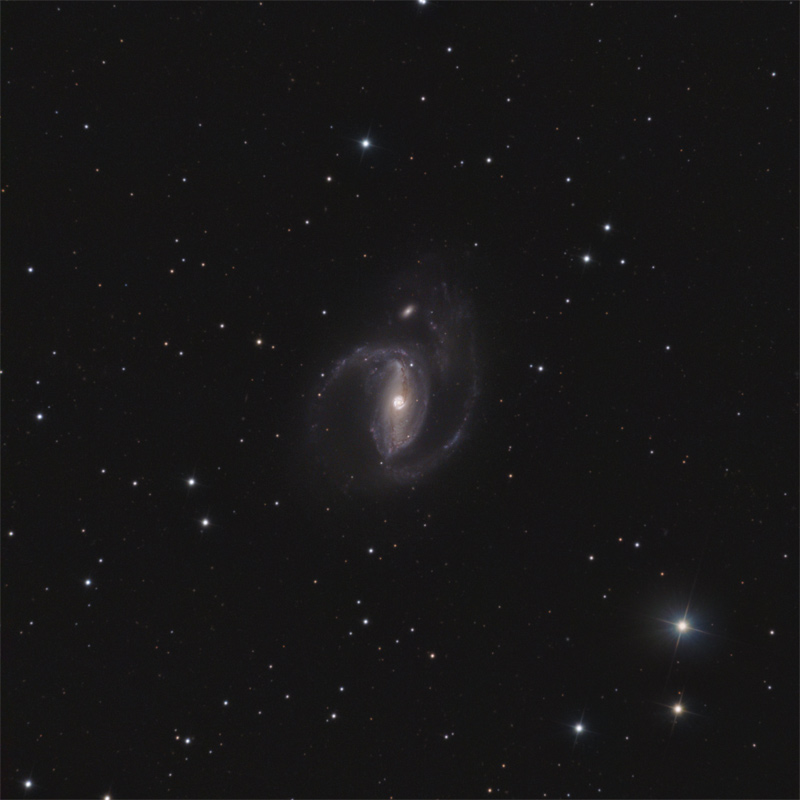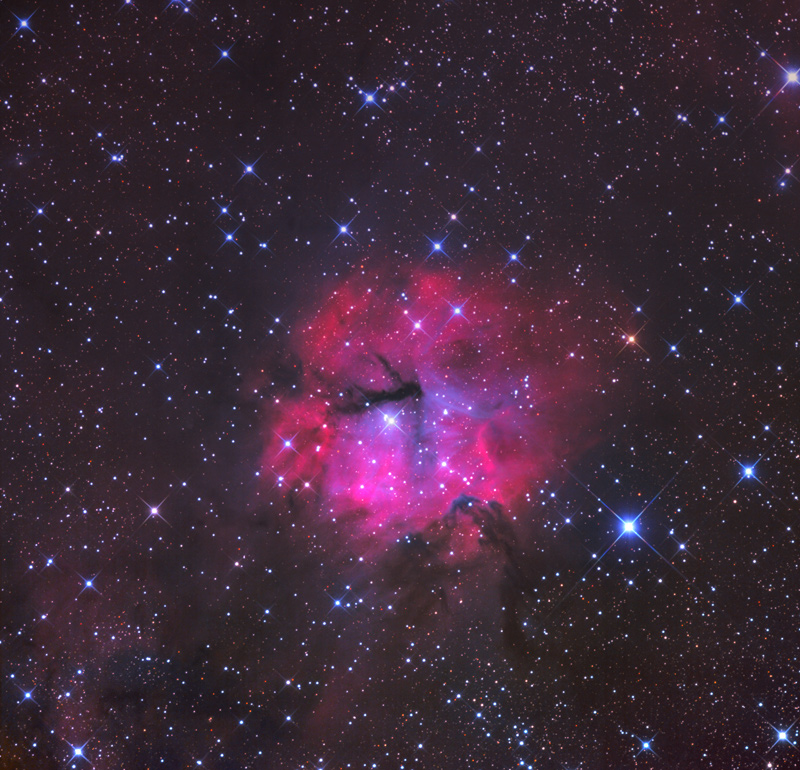Page 1 of 2
Found Images: 2019 November
Posted: Sat Nov 02, 2019 4:55 pm
by bystander
Have you seen a great image or video somewhere that you think would make a great APOD? Nominate it for APOD! Please post as much information here as you have about the image/video with a link to any source(s) for it you know of here, and the editors will take a look.
When posting the image itself, please do not post anything larger than a thumbnail here; please honor the copyright holder's copyright.
Please keep hotlinked images under 400K.
Thank you!
<< Previously
Re: Found Images: 2019 November
Posted: Sun Nov 03, 2019 6:49 pm
by starsurfer
Re: Found Images: 2019 November
Posted: Sun Nov 03, 2019 6:50 pm
by starsurfer
Re: Found Images: 2019 November
Posted: Sun Nov 03, 2019 6:53 pm
by starsurfer
LDN 988
http://www.capella-observatory.com/Imag ... LDN988.htm
Copyright: Josef Pöpsel, Stefan Binnewies and Frank Sackenheim
Re: Found Images: 2019 November
Posted: Sun Nov 03, 2019 6:55 pm
by starsurfer
Re: Found Images: 2019 November
Posted: Sun Nov 03, 2019 6:56 pm
by starsurfer
NGC 6309
http://www.chart32.de/index.php/component/k2/item/299
Copyright: CHART32
Processing: Johannes Schedler
Inside the VLT Survey Telescope
Posted: Mon Nov 04, 2019 5:15 pm
by bystander
Inside the VLT Survey Telescope
ESO Picture of the Week | VST | 2019 Nov 04
This seldom-seen perspective offers a true insider’s view of one of ESO’s world-leading telescopes: the VLT Survey Telescope, or
VST.
The VST is installed at ESO’s
Paranal Observatory in Chile. It is the largest telescope surveying the sky in
light visible to humans and its cutting-edge design makes it a powerful tool for studying the Universe. From this viewpoint the
OmegaCAM instrument — a camera with a large field of view — can be seen front and centre, nestled inside its stabilising control structure.
When night falls the telescope’s dome opens and the VST gets to work. The high altitude and arid conditions of the
Atacama Desert provide the perfect conditions for astronomical observing, delivering cloud-free skies and very low light pollution for the vast majority of the year. This allows for truly spectacular views of the
Milky Way overhead, complete with its array of striking colours, streaks of dark
interstellar dust, and bright foreground stars — as seen here.
Champions League (NGC 1333)
Posted: Mon Nov 04, 2019 5:28 pm
by bystander
Champions League
ESA Hubble Picture of the Week | 2019 Nov 04
Within a galaxy hosting around 300 billion stars, here the NASA/ESA Hubble Space Telescope has captured a mere handful or two — just about enough to form a single football team. These stellar “teammates” play under the banner of
NGC 1333, the cloud of gas and dust which formed them and that they continue to call home.
NGC 1333 is located about 1000 light-years away in the constellation of
Perseus (
The Hero). The cool gas and dust concentrated in this region is generating new stars whose light is then reflecting off the surrounding material, lighting it up and making this object’s lingering presence known to us. NGC 1333 is accordingly classified as a
reflection nebula.
This image shows just a single region of NGC 1333. Hubble has imaged NGC 1333 more widely
before, revealing that the smattering of stars seen here has ample company. Seen in a broader context, this team of stars is but one gathering amongst many in NGC 1333’s celestial Champions League.
Re: Champions League (NGC 1333)
Posted: Mon Nov 04, 2019 7:11 pm
by Ann
bystander wrote: ↑Mon Nov 04, 2019 5:28 pm
Champions League
ESA Hubble Picture of the Week | 2019 Nov 04
Within a galaxy hosting around 300 billion stars, here the NASA/ESA Hubble Space Telescope has captured a mere handful or two — just about enough to form a single football team. These stellar “teammates” play under the banner of
NGC 1333, the cloud of gas and dust which formed them and that they continue to call home.
NGC 1333 is located about 1000 light-years away in the constellation of
Perseus (
The Hero). The cool gas and dust concentrated in this region is generating new stars whose light is then reflecting off the surrounding material, lighting it up and making this object’s lingering presence known to us. NGC 1333 is accordingly classified as a
reflection nebula.
This image shows just a single region of NGC 1333. Hubble has imaged NGC 1333 more widely
before, revealing that the smattering of stars seen here has ample company. Seen in a broader context, this team of stars is but one gathering amongst many in NGC 1333’s celestial Champions League.
The players of NGC 1333 are juniors and lightweights to boot. Don't let them play with the
big sisters of the Pleaides!
Ann
AAS: Mapping Out Gas in a Jellyfish Tail
Posted: Tue Nov 05, 2019 4:46 pm
by bystander
Mapping Out Gas in a Jellyfish Tail
AAS Nova Featured Image | 2019 Nov 04
Susanna Kohler wrote:
Feeling jelly? This detailed image reveals the molecular gas in the long tail of the jellyfish galaxy ESO 137-001. In this image, red emission is molecular gas newly detected with the Atacama Large Millimeter/submillimeter Array (ALMA), green shows MUSE Hα emission, and the background image (blue, green, and red) shows the galaxy as imaged by the Hubble Space Telescope. This jellyfish galaxy is located 220 million light-years away in the Norma galaxy cluster, and its tail is caused by ram pressure stripping — the stripping of its gas as the galaxy falls through the surrounding intracluster medium, the material that lies in the space between galaxies. In a new publication led by Pavel Jáchym (Astronomical Institute, Czech Academy of Sciences), astronomers present ALMA’s unprecedented high-resolution maps of this jellyfish galaxy’s molecular-gas tail and show how this helps us to understand star formation in these dynamic, intense environments. To learn more about star formation in cosmic jellyfish (and to view the full original image), check out the article below.
ALMA Unveils Widespread Molecular Gas Clumps in the Ram Pressure
Stripped Tail of the Norma Jellyfish Galaxy ~ Pavel Jachym
et al
Re: Found Images: 2019 November
Posted: Wed Nov 06, 2019 10:46 am
by starsurfer
Re: Found Images: 2019 November
Posted: Wed Nov 06, 2019 10:50 am
by starsurfer
M89 and M90
https://www.hansonastronomy.com/m89m90-mosaic
Copyright: Mark Hanson
You can find more information about the ionized outflow associated with M90
here.
Re: Found Images: 2019 November
Posted: Wed Nov 06, 2019 10:52 am
by starsurfer
Fe 6
https://www.britastro.org/node/19200
Copyright: Peter Goodhew
This is one of a few discoveries by the French amateur astronomer
Laurent Ferrero.
Re: Found Images: 2019 November
Posted: Wed Nov 06, 2019 2:28 pm
by Ann
How fascinating!!!
What a great image!!!!
Ann
Re: Found Images: 2019 November
Posted: Sat Nov 09, 2019 6:43 pm
by starsurfer
NGC 1543
http://www.chart32.de/index.php/component/k2/item/291
Copyright: CHART32
Processing: Johannes Schedler
Re: Found Images: 2019 November
Posted: Sat Nov 09, 2019 6:44 pm
by starsurfer
NGC 1097
http://www.astrophoton.com/NGC1097.htm
Copyright: CEDIC
Processing: Bernhard Hubl
Re: Found Images: 2019 November
Posted: Sat Nov 09, 2019 6:48 pm
by starsurfer
ESO: The Beauty of 22 Degrees
Posted: Mon Nov 11, 2019 7:00 pm
by bystander
The Beauty of 22 Degrees
ESO Picture of the Week | 2019 Nov 11
The telescopes at ESO’s
La Silla Observatory in Chile are on a mission to observe and understand the vast Universe — but there are plenty of interesting natural phenomena far closer to home. One such example is this angelic
22-degree halo. This photo was taken high up in the remote
Atacama Desert, but such a sight is visible year-round all over the world.
These
haloes are formed when light from the
Sun or
Moon passes through
cirrus clouds high up in the Earth’s atmosphere. The tiny ice crystals that make up these clouds act as miniature prisms, changing the direction of the light that passes through them (something known as
refraction). Light rays that do this tend to “
bunch up” at the angle that represents the least amount of deviation from their original path. For the particular shape of ice crystal lurking within the cirrus clouds, this minimum deviation angle happens to be around 22 degrees, which is why we see this concentrated halo of light at a distance corresponding to 22 degrees from the moon.
ESO’s
3.6-metre telescope provides an appropriate foreground to the angelic scene — this telescope hosts the
HARPS (High Accuracy Radial velocity Planet Searcher) instrument. HARPS was one of two ESO instruments that in 2016 detected the Earth-mass world
Proxima b, which orbits around the closest known star to the Sun.
HEIC: A Rival to the Milky Way (NGC 772)
Posted: Mon Nov 11, 2019 7:10 pm
by bystander
A Rival to the Milky Way
ESA Hubble Picture of the Week | 2019 Nov 11
The Universe is simply so vast that it can be difficult to maintain a sense of scale. Many galaxies we see through telescopes such as the NASA/ESA Hubble Space Telescope, the source of this beautiful Picture of the Week, look relatively similar: spiralling arms, a glowing
centre, and a mixture of bright specks of
star formation and dark ripples of
cosmic dust weaving throughout.
This galaxy, a
spiral galaxy named
NGC 772, is no exception. It actually has much in common with our home galaxy, the
Milky Way. Each boasts a few
satellite galaxies, small galaxies that closely orbit and are gravitationally bound to their parent galaxies. One of NGC 772’s spiral arms has been distorted and disrupted by one of these satellites (NGC 770 — not visible in the image here), leaving it elongated and asymmetrical.
However, the two are also different in a few key ways. For one,
NGC 772 is both a
peculiar and an
unbarred spiral galaxy; respectively, this means that it is somewhat odd in size, shape, or composition, and that it lacks a central feature known as a bar, which we see in many galaxies throughout the cosmos — including the Milky Way. These bars are built of gas and stars, and are thought to funnel and transport material through the galactic core, possibly fueling and igniting various processes such as star formation.
Re: Found Images: 2019 November
Posted: Tue Nov 12, 2019 12:33 pm
by starsurfer
Re: Found Images: 2019 November
Posted: Wed Nov 13, 2019 6:09 pm
by starsurfer
G65.2+5.7
http://outters.fr/wp/?p=8328
Copyright: Nicolas Outters
Re: Found Images: 2019 November
Posted: Thu Nov 14, 2019 6:24 pm
by starsurfer
NGC 5078 and NGC 5101
http://www.cielaustral.com/galerie/photo101.htm
Copyright: Ciel Austral
NGC 5078 with its companion IC 879 is on the left and NGC 5101 is on the right.
Re: Found Images: 2019 November
Posted: Fri Nov 15, 2019 11:13 am
by starsurfer
Re: Found Images: 2019 November
Posted: Sat Nov 16, 2019 4:57 pm
by starsurfer
K1-6
http://www.capella-observatory.com/Imag ... s/K1-6.htm
Copyright: Josef Pöpsel, Frank Sackenheim and Stefan Binnewies
Re: Found Images: 2019 November
Posted: Sun Nov 17, 2019 6:07 pm
by starsurfer
M38
http://afesan.es/Deepspace/slides/Starf ... ga%29.html
Copyright: Antonio Sánchez
M38 is the open cluster at right. The one in the middle is NGC 1907. In the full resolution image, the small planetary nebula Abell 9 can be found somewhere.










